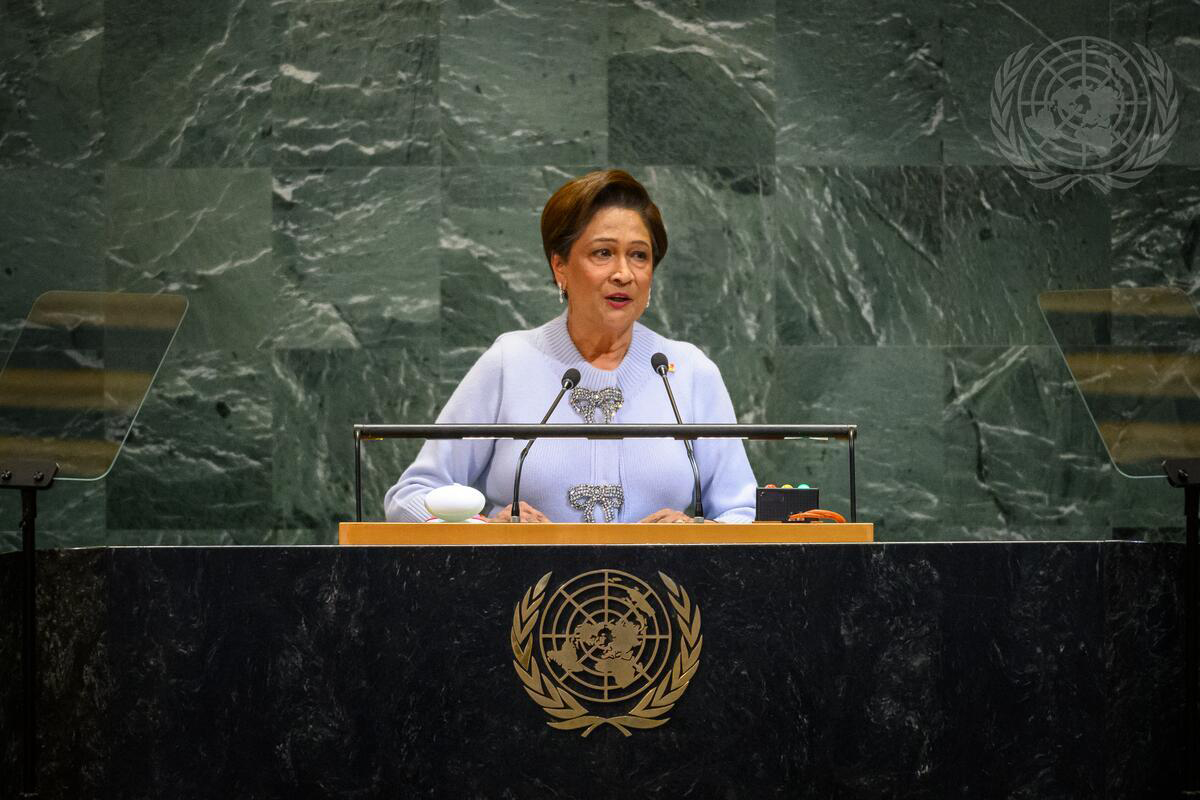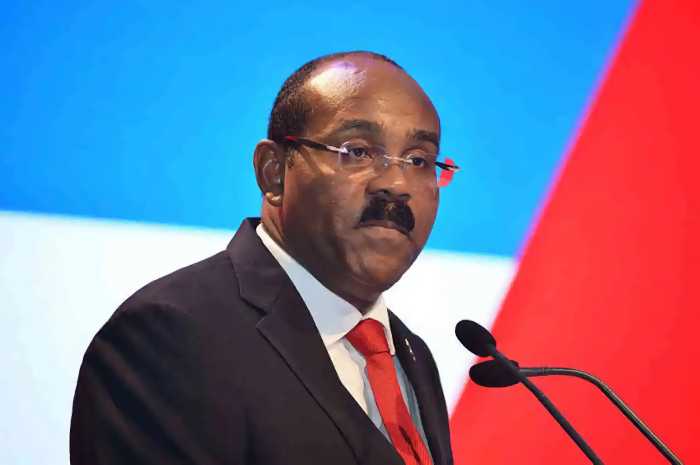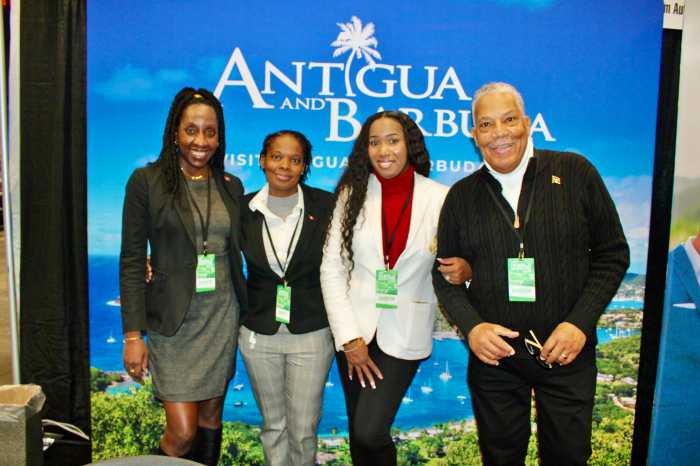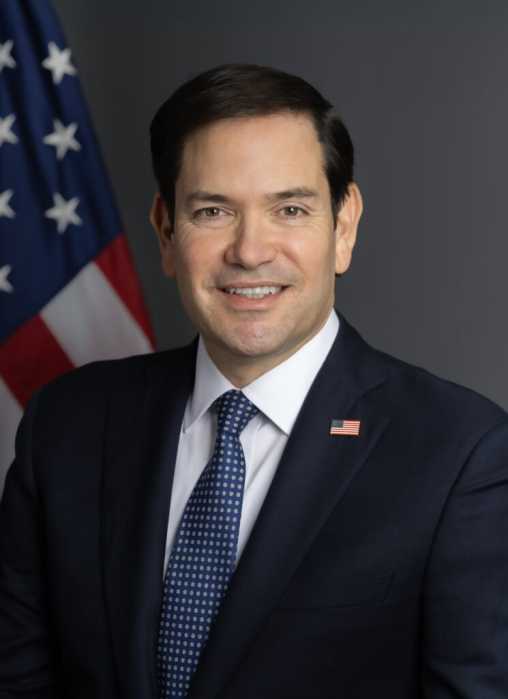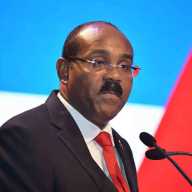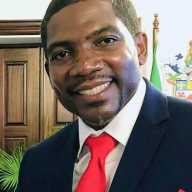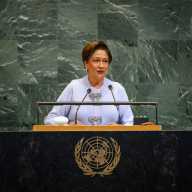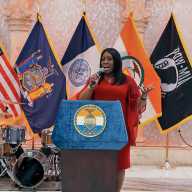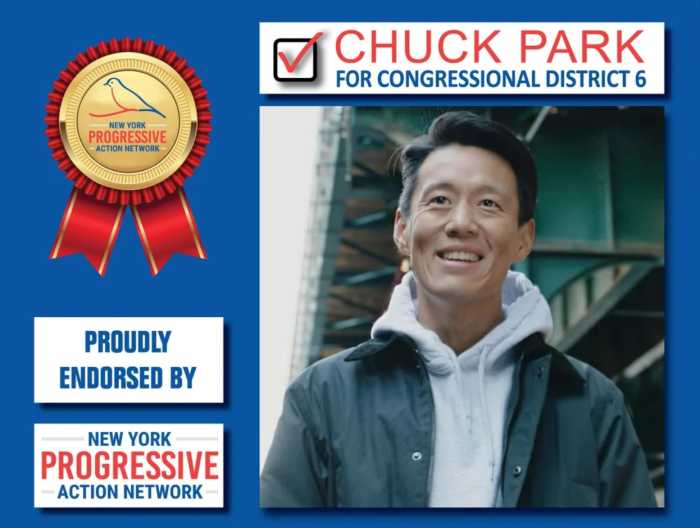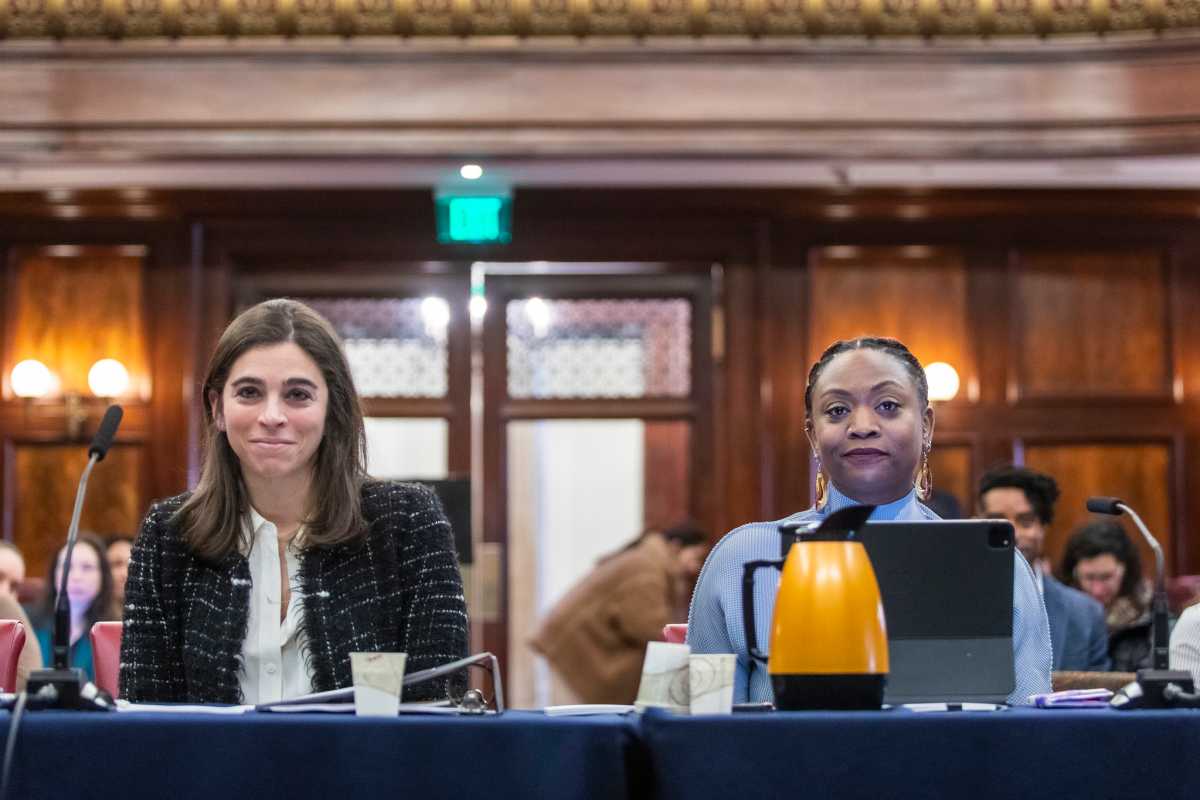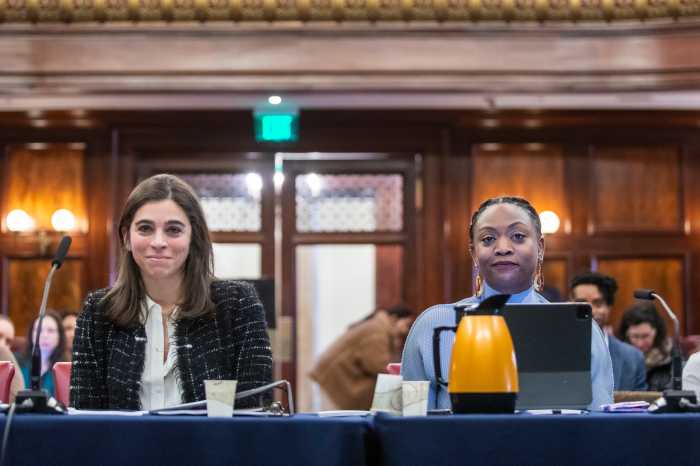Kamla Persad Bissessar temporarily put Caribbean unity aside at the United Nations on Friday, again throwing her full support behind any US military action against organized crime in the South Caribbean. At the same time, her colleagues argued for the area to remain a zone of peace.
The Trinidad and Tobago Prime Minister, citing years of gangland violence, an average of 600 murders annually in recent years, the adverse effects of narco trafficking and other international crimes, stated at the annual General Assembly session that the notion that the region can still be regarded as a zone of peace no longer applies. It is basically now a myth.
“The notion that the Caribbean is a zone of peace has become a false ideal. The reality is, stop, no such peace exists today. For too many in our region, peace is not daily life, but an elusive promise, glimpsed and never grasped. In its absence, our citizens pay a terrible toll,” she said, citing the hundreds of murders recorded in the twin-island republic each year. “And many of them are gang-related. So, the reality is, being a zone of peace is still an elusive dream that we’re pursuing.”
The PM spoke on Friday among several Caribbean heads of state and government, including Ralph Gonsalves of St. Vincent, Mia Mottley of Barbados, and President Sylvaine Burton of Dominica.
While the others expressed concern for the Southern Caribbean because of the presence of the American military armada in waters close to Trinidad and Venezuela, the prime minister lined up solidly behind Washington. She said the entire region would benefit from a coordinated attack on organized crime as she doubled down on the republic’s support for the US.
Latest reports over the weekend indicated that the US, after weeks of electronic intelligence gathering, is preparing for targeted military strikes deep inside Venezuela against alleged drug trafficking enterprises. And even though this could lead to an all-out conflict, Kamla Persad Bissessar is grateful someone mightier than Trinidad is ready to deal with cross-border crimes.
“This intervention can only benefit all of us at CARICOM. I don’t know what the boogeyman narrative has been pursued by some persons. What is wrong with having people come to help us fight against narco-trafficking, against human trafficking? Why are you so concerned? Do you have any linkages with the drug cartels? No, we don’t. And therefore, I take serious umbrage to some persons with a false narrative about this intervention and what it will do for sovereignty and what it will not. This is a national security effort that will assist all of us in the CARICOM,” she said.
Later, Ralph Gonsalves, easily the dean of Caribbean leaders, having been in office since 2001, said his multi-island nation was uncomfortable with the US presence and threats of conflict.
“Repeatedly, the countries of the Caribbean and Latin America have unanimously declared our area a zone of peace. We urge our American friends to abide by this declaration. A unilateral militarization is decidedly not the way to go. St. Vincent and the Grenadines calls for the scaling back of actions and rhetoric so inimical to cordial neighborly relations. In particular, we find the foreign militarization of the waters around Venezuela exceedingly troubling. This is exceedingly troubling.”
Meanwhile, PM Mia Mottley of Barbados, the most militant of her group, said she fears an accident could affect us all in the region.
“I need not tell you, therefore, what a war can do. It is not acceptable for our islands and our countries to be viewed as collateral damage. We’re now seeing a shocking violation of a hemispheric understanding that the Caribbean be treated as a zone of peace. There has been a buildup in military assets in the last few weeks in the Caribbean by both sides, by the US and by Venezuela. We believe that any such buildup could occasion just an accident and, if it does, a simple accident can put the southern Caribbean at disproportionate risk.”
Representing Dominica, ceremonial President Sylvaine Burton also pitched the zone of peace concept, contending that “there is no place in the Caribbean for war. The Caribbean is a zone of peace. Any military conflict in the Caribbean will have significant negative impacts on the Caribbean and Latin America. There is a better way to resolve differences; we urge the powers that be to find another way.”
Gaston Browne of Antigua signaled that he was uncomfortable with the attacks on vessels in international waters, as the US has reported recently.
“We are concerned with the buildup of military assets, including a nuclear submarine, indicating the possibility of military conflict. We remind everyone that our hemisphere should be respected as a zone of peace, not a theatre of military conflict. Without judging facts not before us, including reports of lethal incidents off the coast of Venezuela, we restate a simple principle: the fight against drug trafficking must rest on cooperation and law. Interdictions should proceed under clear legal authority and rules of engagement that minimize risk to life, respect for sovereignty and the law of the sea, and prompt information-sharing and review,” he stated.


